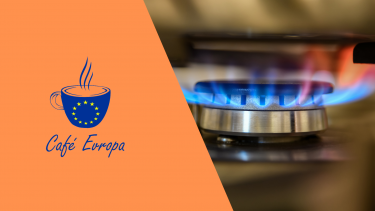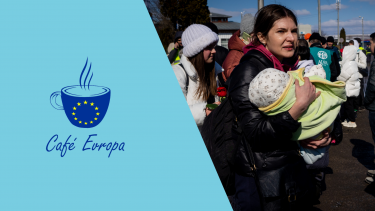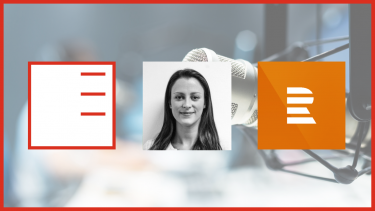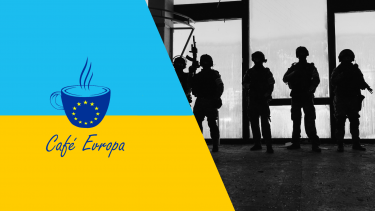INVITATION: Café Evropa online: The future of European energy - how to ensure stable and clean energy sources without Russia?
We would like to invite you to the Café Evropa debate on 21 March at 17:30 on the topic "The future of European energy - how to ensure stable and clean energy sources without Russia?". The Russian invasion of Ukraine has, among other things, further fuelled the question of energy security in the Czech Republic and the EU and the future of energy in our country. The current security situation points to the need to diversify energy sources as soon as possible, i.e. to secure energy supplies from different regions and countries in order to avoid excessive dependence on Russia. There are also views in the public debate that coal extraction could be temporarily increased, which would enable some countries to cover any shortfalls in resources. Is a complete or even partial halt of Russian gas supplies to the Czech Republic and the European Union a realistic option? What impact would this have on our energy security? How much further increase in energy prices can we expect in this case? How should EU countries react and help households and industry cope with the expected increase? Could a possible temporary increase in coal extraction mean a return to fossil fuels and the end of the EU's climate ambitions? Or could the current problematic situation further accelerate the energy transition?
Zjistit víceINVITATION: Café Evropa online: Ukrainian women with children fleeing war - how can we help?
We invite you to a debate within the Café Evropa series, this time on the topic "Ukrainian women with children fleeing war - how can we help?". The debate will take place on 28 March at 17:30. You will be able to follow the debate online on our Facebook page.
Zjistit víceReport: EU – Pacific Talks: H2 – Hydrogen Hype
David Plhák wrote a report from the EU - Pacific Talks debate on: H2 - Hydrogen Hype. The debate outlined the current state of the hydrogen economy and its role in the EU, Czech Republic and Japan's efforts to achieve climate neutrality and reduce energy dependence on hydrogen.
Zjistit více PDFReport: EU – Pacific Talks: H2 – Hydrogen Hype
David Plhák napsal report z debaty EU - Pacific Talks na téma: H2 – Hydrogen Hype. Debata nastínila současný stav vodíkového hospodářství a jeho roli v úsilí o klimatickou neutralitu a snižování energetické závislosti na vodíku EU, Česka a Japonska.
Zjistit více PDFINVITATION: EU± // The European Union and the multipolar world after the war in Ukraine
We invite you to the next debate in the EU± series, this time on what position the EU will and should take in the emerging multipolar geopolitical order. The debate will take place online via Facebook on Wednesday March 23 at 17:30.
Zjistit víceRádio Slovensko: Is there a room for diplomatic dialogue with Moscow when missiles are still falling on Ukrainian cities?
Žiga Faktor, a research fellow from our Institute and the head of our Brussels office, together with Irena Jenčová from the Euractiv portal, spoke in a Radio Slovakia discussion about sanctions against Russia, the unacceptable demands of the Kremlin, and the search for a way for Europe to replace Russian gas and oil. Will economic pressure force Moscow to come to the negotiating table and declare a ceasefire in Ukraine? Would not greater diplomatic engagement by the United States or China help?
Zjistit více
INFO.cz: Ukraine, Georgia and Moldova are claiming their place in the European Union. Will there be an Eastern Enlargement 2.0?
The European Union's enlargement policy experienced a shock at the end of February when Russia-attacked Ukraine applied for EU membership. In the following days, Georgia and Moldova - other Eastern European countries with European aspirations and under imminent threat from Moscow - did the same without hesitation. Ukraine's application in particular was met with a very positive reaction from the EU. Our researcher Jana Juzová writes for INFO.cz.
Zjistit víceČRo Plus: Ukraine applies to join the European Union. Is its membership just wishful thinking or is it actually on the agenda?
Our researcher Jana Juzová spoke on Český Rozhlas Plus about Ukraine's application to the European Union, which was submitted last week. Ukrainian President Volodymyr Zelensky submitted the application, which was subsequently supported by European Commission President Ursula von der Leyen and the entire eastern wing of the Union. Is Ukraine's starting position problematic? How likely is it that candidate status will be granted? And which members are traditionally against the enlargement of the Union?
Zjistit víceINVITATION: Café Evropa online: Russian aggression in Ukraine - can we stop Putin?
We would like to invite you to the next debate within the Café Evropa series, this time on the topic: " Café Evropa: Russian aggression in Ukraine - can we stop Putin?". The debate will take place on 2 March at 17:30. What will be the impact of the joint actions of the EU and NATO countries on Russia? Are the arms supplies sufficient or should direct military support be included? Can economic sanctions help Ukraine in any way now, or is this more of a step that will only become apparent in the longer term? Is the collapse of the rouble and the entire Russian market realistic? How can China influence Russia's current economic situation? And how will these sanctions be felt by the Russian population?
Zjistit víceEURACTIV: You're either with us or against us. Serbia is gambling with its future in the EU
Our researcher Jana Juzová commented for Euractiv on how Serbia's ambiguous position is affecting its EU accession process. Serbia is one of the few European countries, that has refused to join the anti-Russian sanctions, even though it has supported Ukraine's territorial integrity and promised to help refugees. The role taken by this Western Balkan country is not surprising, as it has been teetering between the EU and Russia for the last decade. In the accession process, according to our researcher, Serbia's current position towards Russia is not the biggest problem, as Serbia also faces other shortcomings for EU integration.
Zjistit víceStaroměstské náměstí 4/1
Praha 1 - Staré Město
110 00
tel.: +420 212 246 552
email: europeum@europeum.org
https://www.europeum.org








